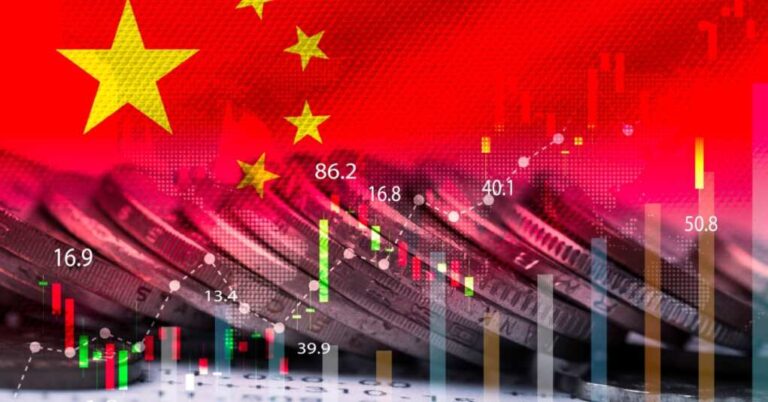
Well, it looks like China is back at it again, pulling out the economic playbook that only works when the rest of the world picks up the slack. Beijing has decided to “stimulate” its economy by widening its budget deficit and issuing more debt—moves that sound a lot like spending money they don’t have to fix problems they can’t solve. And yet, markets are cheering. Why? Because when China sneezes, the global economy catches a cold, and apparently, we’re all supposed to celebrate when they reach for the tissue box.
Let’s not sugarcoat this. China’s economy is struggling, and not just because of the pandemic hangover they won’t admit to or the housing market that’s collapsing faster than a house of cards in a hurricane. This is the natural result of decades of overbuilding, overspending, and overpromising. Their much-touted “economic miracle” was always a little too good to be true, but now the cracks are showing, and the Communist Party is scrambling to paper over them.
This latest stimulus plan involves a combination of government spending and increased borrowing, the economic equivalent of using duct tape to fix a sinking ship. Sure, it might hold things together for a little while, but at what cost? The rest of the world seems to think it’s their problem too. Asian markets are reacting defensively, U.S. bond yields are rising, and global investors are bracing for what comes next. It’s a reminder that when China decides to tinker with its economy, the ripple effects are felt far and wide.
Of course, the Chinese government would have you believe that this is all under control. They’re the masters of managing perceptions, after all. But the reality is a lot messier. Their debt levels are astronomical, their demographics are a disaster, and their reliance on exports makes them vulnerable to every hiccup in global trade. Stimulus or no stimulus, these are problems that can’t be fixed with a few trillion yuan thrown at the problem.
And let’s talk about the hypocrisy. China loves to lecture the world about its economic prowess, but when push comes to shove, they’re just as reliant on cheap credit and government bailouts as the so-called “decadent” West they love to criticize. They can call it “stimulus” all they want, but it’s just another way of kicking the can down the road. And guess what? That road gets shorter every time they do it.
Meanwhile, the rest of the world has to deal with the fallout. Rising bond yields in the U.S. mean higher borrowing costs for American businesses and families, all thanks to China’s economic gamesmanship. And let’s not forget the bigger picture. Every time Beijing flexes its economic muscles, it’s a reminder of just how much influence they have over the global system—a system that’s supposed to be about free markets and fair competition but often feels like it’s rigged in their favor.
This isn’t just about economics; it’s about power. China’s stimulus efforts aren’t just aimed at propping up their economy; they’re about projecting strength at a time when their global standing is under scrutiny. It’s a way of saying, “Look, we’re still in control,” even when the evidence suggests otherwise. And the world, for reasons that defy logic, continues to play along.
So, what’s the takeaway here? China’s stimulus drive might give the markets a short-term boost, but it’s not a solution to their long-term problems. It’s a Band-Aid on a bullet wound, a way to buy time without addressing the underlying issues. And while the global economy might cheer for now, the bill for China’s reckless spending will come due eventually. The question is, who’s going to pay it? Spoiler alert: it probably won’t be Beijing. It’ll be the rest of us, stuck dealing with the consequences of an economic system that lets one country play by its own rules while everyone else foots the bill.

